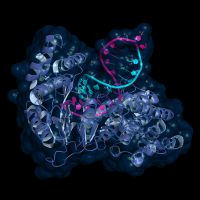
The human body has hidden secrets scientists are just now discovering. Scientists have known that the human body can heal itself naturally, and now they realize that it can ultimately regenerate dying cells. During a clinical trial, the discovery of a new hormone found in males has shown some promising results in countering the effects of aging. The discovery does not promise a prolonged life-span, but rather a way to help people lead healthier lifestyles.
In later experiments, researchers from the United States and Brazil used a synthetic male hormone, known as a danazol steroid, to arouse the production levels of telomerase, a well- known enzyme. Telomerase is best known for keeping cells young by preventing DNA telomerase cells from shrinking. The process stops the generation of telomerase, and attaches itself to the end of the body’s chromosome.
One of the biggest challenges associated with aging is the rapid decrease of telomerase DNA protection. Every time a cell in the body splits or multiplies, the telomeres increase in length. Eventually, the cell will fail to reproduce itself any longer, and die or naturally age. When telomerase is present, it keeps the telomeres in place, and even aids in the process of cell division.
Finding Can Combat the Negative Impact of Telomerase Degeneration
In past studies, evidence presented shows how aging cells can be stopped by increasing telomerase, which is produced naturally by human cells, and is continually multiplying. This process is similar to blood-forming cells. A lack of telomerase can increase the risk of cancer and have a negative impact on the internal organs. Most recent studies show that prescription steroids are responsible for generating telomerase on demand, confirming what scientists had previously witnessed in the laboratory.
Armed with this relatively new knowledge, new medical treatments can be produced for serious diseases like aplastic anemia, which causes premature aging of the bone marrow stem cells. In the study danazol was distributed over a two-year period, to 27 patients with aplastic anemia, which was caused by the mutation of telomerase genes. The discovery can also produce treatment for scarred lungs, and pulmonary fibrosis.
Over a two-year period, a person will lose from 100 to 120 telomere base pairs (DNA building blocks) each year. However, people with telomerase deficiencies could lose from 200 to 600 base pairs over the same course of time. When participants were given the new treatment, the length of telomere cells stopped shrinking, and increased by an average of 386 base pairs. Hemoglobin mass increased, which meant patients no longer needed to rely on blood transfusions.
New Discovery Opens the Door for Future Research
While scientists are optimistic at the possible new treatments and medical breakthroughs, every success comes with a price. The use of sex hormones has notable side effects, such as digestive system problems, fatigue, and mood swings.
Knowing how to overcome one of life’s biological barriers, such as aging, is a valuable and major accomplishment for future research projects. As of now, the elixir to the fountain of youth, or staying young forever is out of reach. At this moment, the possibilities of new medical miracles in science are looking more promising than ever.
[Source:- The World Health .net]



